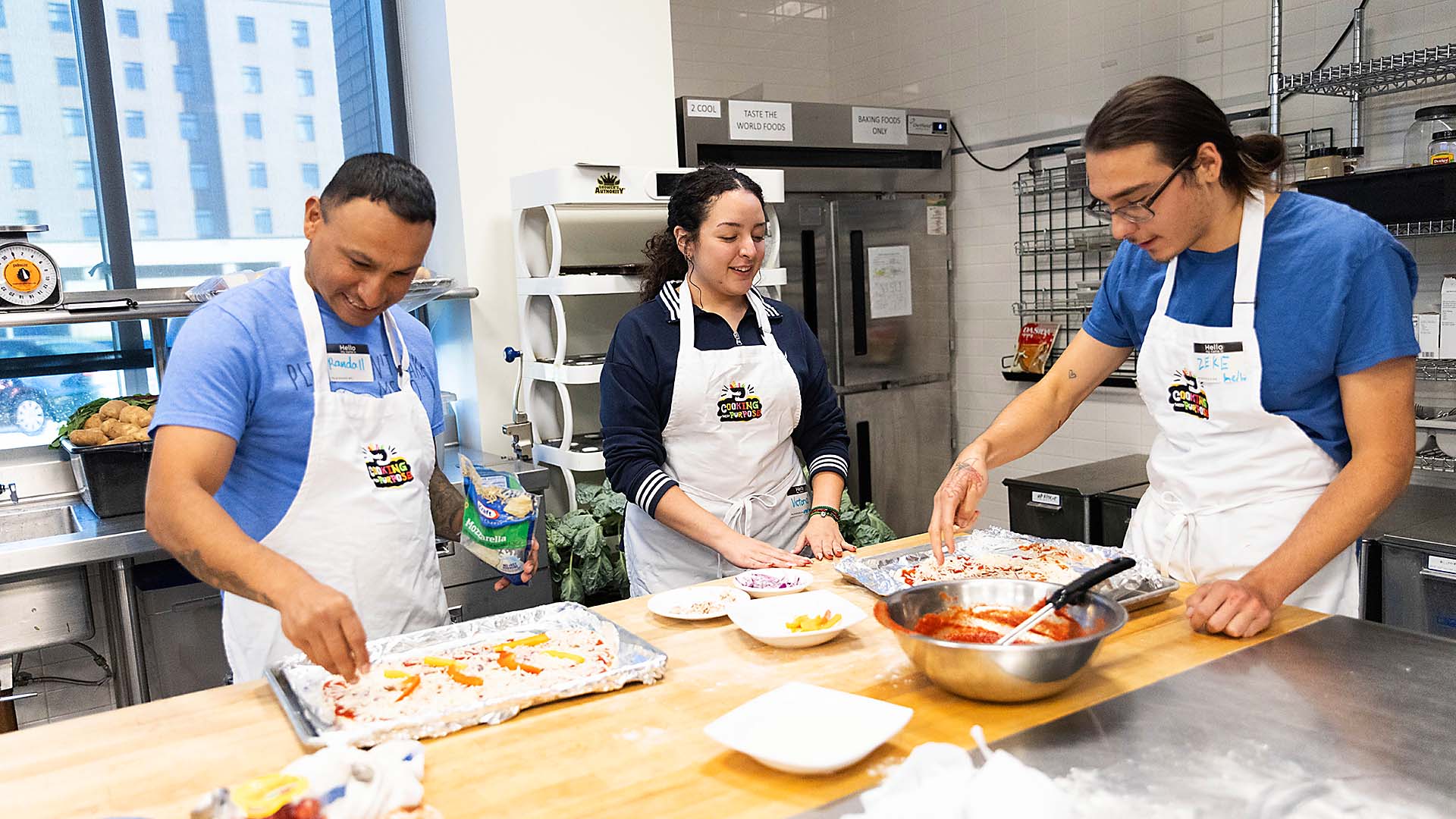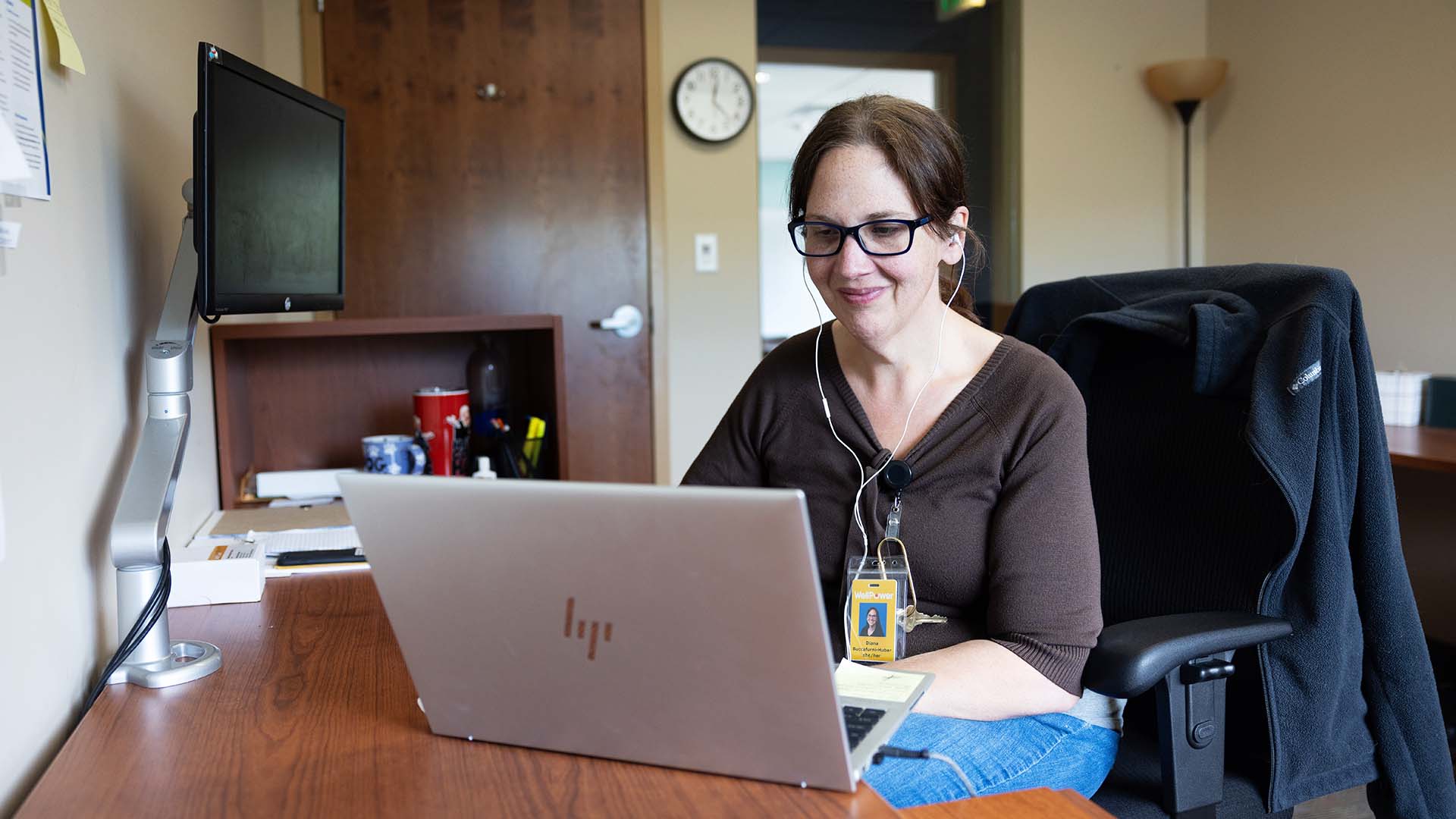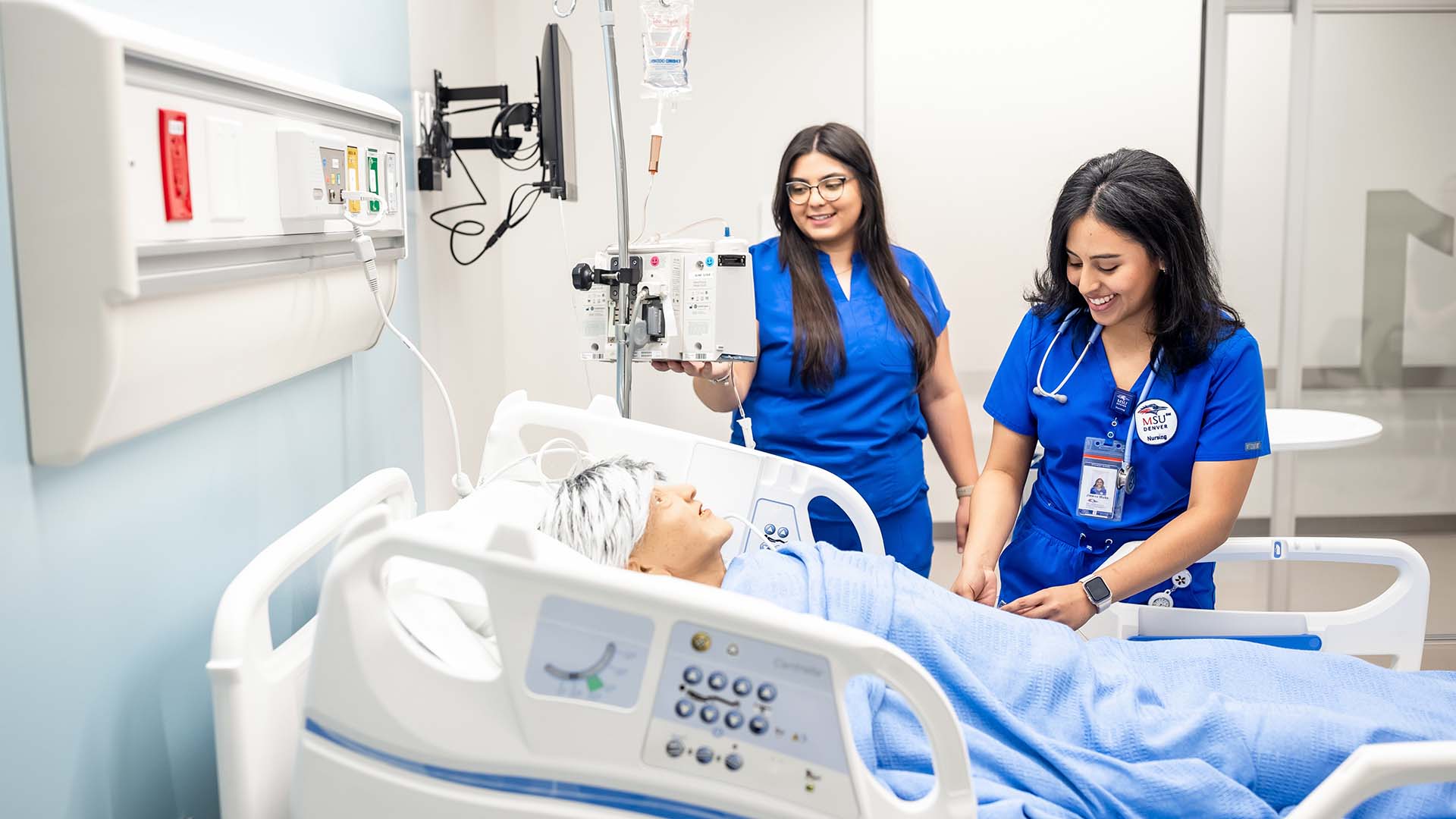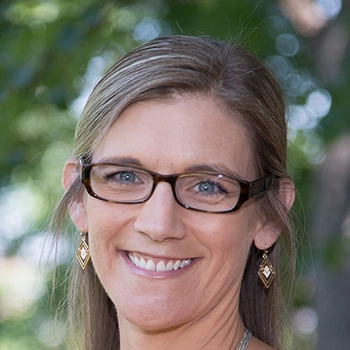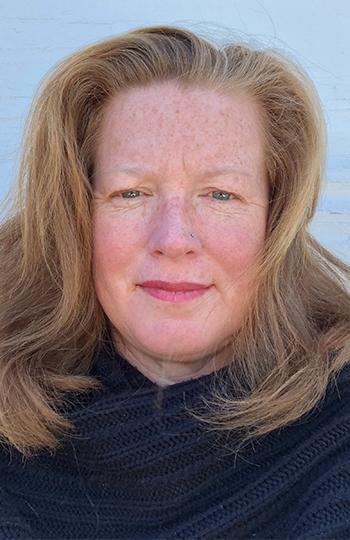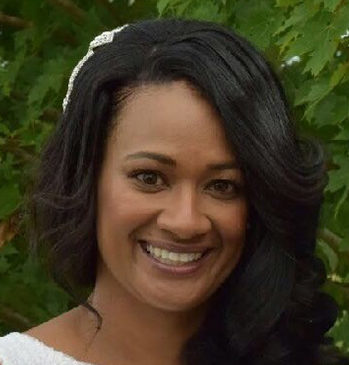Leah Jackson is on the front lines of veterans’ mental health
Former Army truck driver uses trauma-informed care to help her fellow vets access behavioral-health services with no out-of-pocket expense.

Note: This story contains discussion of suicide. If you or someone you know is in crisis, confidential help is available 24/7 at the Suicide and Crisis Lifeline by dialing or texting 988.
About 17 military veterans die by suicide each day on average, according to a report from the Department of Veterans Affairs. However, that number may be as high as 44 when drug overdoses are taken into consideration.
Fortunately, behavioral-health specialists such as Leah Jackson have a plan. As a therapist with UC Health’s Next Chapter program, Jackson connects fellow veterans and their families to behavioral-health services at no out-of-pocket expense. Funded by SB21-129, the Next Chapter program has served more than 1,500 participants, resulting in a 5% decrease in veteran suicide in El Paso County.
Jackson draws on her own experience as a truck driver in the Army to build upon a shared camaraderie of service, emphasizing connection in the often-difficult transition from military to civilian life.
“We each have our own journeys — it’s my story but also my battle buddies,’” Jackson said. “The transition from military to civilian life is beyond challenging, so having someone every step of the way is imperative.”
RELATED: Veterans share strength to stem suicide crisis
A graduate of Metropolitan State University of Denver’s Human Services and Counseling program, Jackson incorporates a trauma-informed framework in her work with Next Chapter and as a faculty member for the University.
She takes into consideration that use of substances such as alcohol is the driving factor behind 65% of veterans who are admitted into treatment facilities — nearly double the rate of the civilian population. In addition, 82% to 93% of veterans who served in Iraq or Afghanistan with a substance-use disorder had a co-occurrence of a mental-health disorder such as post-traumatic stress disorder, depression or anxiety.
Effective care shifts the focus from a diagnostic “what’s wrong” with a person to “what’s happened” to them, she said.
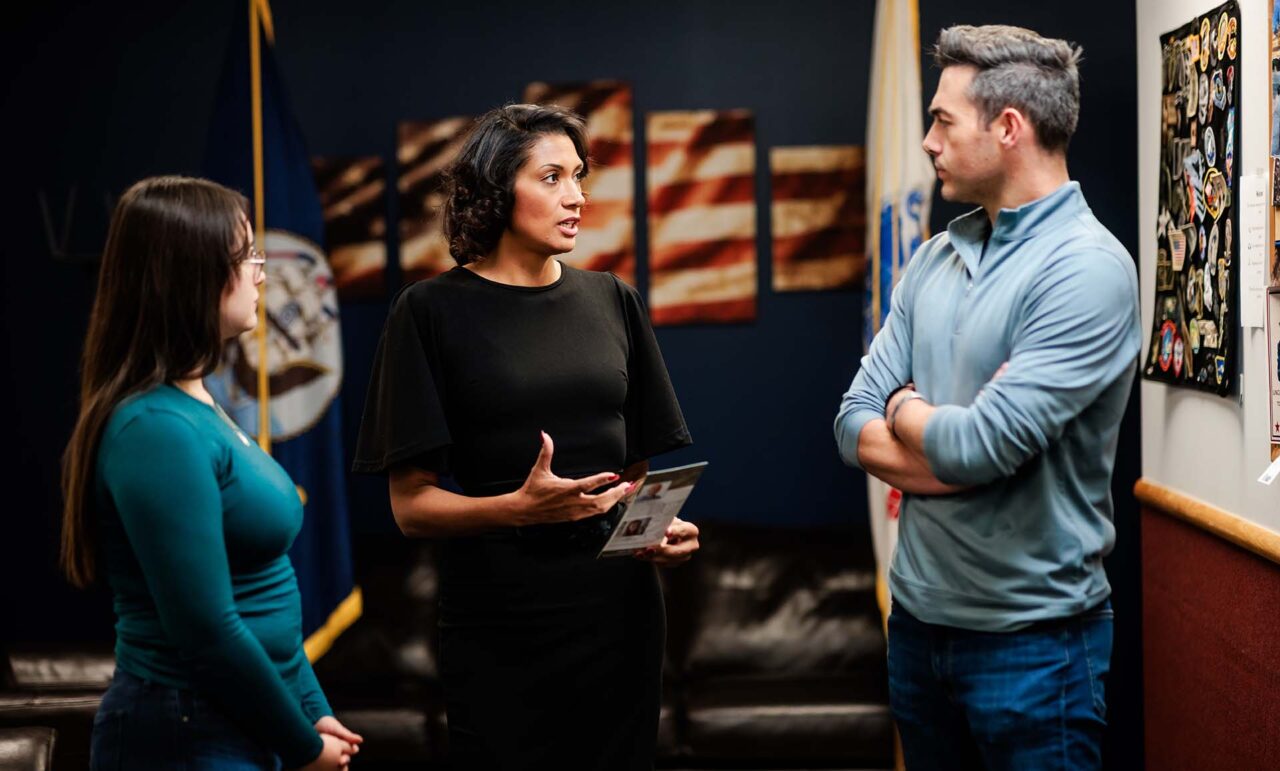
Jackson has found that some providers are hesitant to work with veterans because of the providers’ lack of experience and knowledge related to military and veteran culture. Veterans have reported to her that their therapists have told them, “If you don’t want to talk about combat trauma, I can’t help you.”
Yet if they do want to talk about combat trauma, some veterans have been told, “I am not equipped for this,” and the therapist discontinues therapy and refers the veteran to another provider, Jackson said.
“The military and veteran population is in need of more culturally competent providers that can provide effective behavioral-health treatment and services,” she said. “Additionally, therapists don’t consider trauma that happened preenlistment. Military members and veterans are a unique population with unique experiences, and behavioral-health providers must be knowledgeable about our culture to provide services that facilitate healing and recovery without the stigma.”
RELATED PHOTOS: The Auraria Campus celebrates Veterans Day
Jackson and the Next Chapter program have adopted an upstream approach, helping to address underlying factors that might preclude participants from accessing care.
Veterans Day events at MSU DenverFriday, 11 a.m.-2 p.m.: Flag planting | Meet at MSU Denver Veteran Center Monday, 10 a.m.-2 p.m.: Tri-Institutional Resource Fair | Tivoli Turnhalle | Lunch at the Veteran and Military Student Services Office beginning at noon Nov. 12, noon-2 p.m.: Native Indigenous Heritage Month: Honoring Our Native American Veterans | JSSB 400 Nov. 13, 8-10 a.m.: Coffee and Donuts | Veteran Center | Tivoli 215 | Event sponsored by MSU Denver Veteran Alumni Nov. 14, 9 a.m.-4 p.m.: Blood Drive | 9th street, near the first-floor entrance of Tivoli Nov. 14, 6:30 p.m.: Alumni Veteran and Military Appreciation Night | Men’s Basketball Game
|
|
“By creating access for veterans and their families to resources in the community that address their immediate basic needs, they then are willing to engage and participate in therapeutic treatment,” she said.
She also noted the importance of gratitude in building relationships with clients in alignment with trauma-informed care. “Working with veterans and their families starts with building trust, and you do this by having gratitude for their story and, ultimately, their journey that has brought them up to this point in their life,” she said.
As an alumna of the University for which she now teaches, she sees the work she’s doing as a continuation of service on all fronts.
“It’s an honor to hear the good and bad that have brought my fellow veterans to this point —it speaks to their perseverance and resilience,” Jackson said.
“The best is being able to give others hope when they’re feeling hopeless,” she said, “and plant the seed that recovery from mental health disorders and substance use is possible.”


